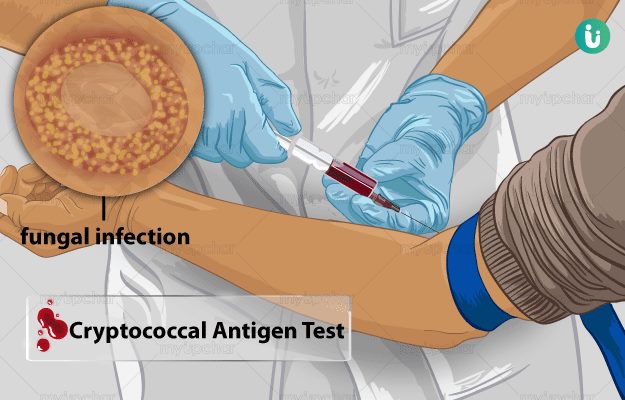What is a Cryptococcal Antigen test?
A cryptococcal antigen test detects the presence of the fungus Cryptococcus in blood for diagnosing cryptococcal infection.
Cryptococcus usually does not cause any infection in a healthy host. It is categorised as an opportunistic infection, ie, it affects an individual with compromised immunity.
The spores of Cryptococcus are generally found in soil and bird droppings. When these spores enter the body of an immunocompromised person, it causes cryptococcal meningitis.
In patients with human immunodeficiency virus (HIV) infection, with a lower CD4-positive cell count, this meningitis is generally fatal.
As a screening test for the early diagnosis of cryptococcal infection, a cryptococcus test helps to prevent mortality due to meningitis.
































